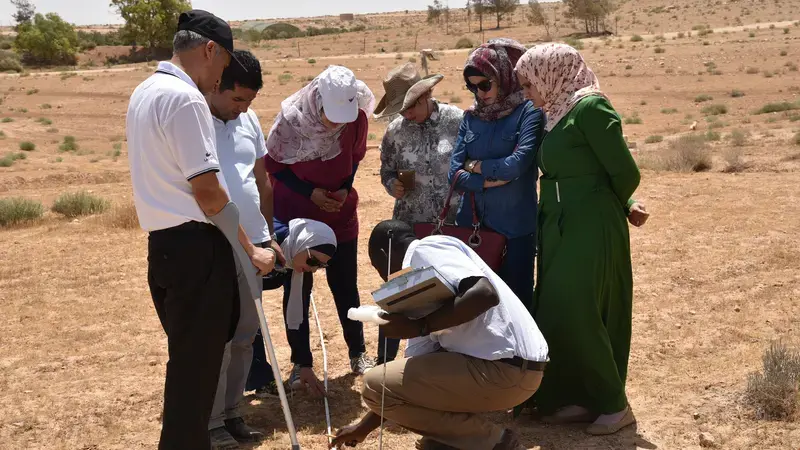Investigating rangeland degradation and restoration

Despite their significant economic and cultural value across many countries in the dry areas, rangelands suffer from low productivity and increasing rates of degradation and desertification. ICARDA’s mission to reverse these trends through innovative and multi-dimensional approaches is strengthened by the application of models that inform and enhance effective erosion-reducing interventions.
Recently, the Center held a training on applied rangeland hydrology and erosion modeling (RHEM) to strengthen the capacity of national partners so they can better address hydrology and degradation challenges across the Middle East and North Africa (MENA).
RHEM is a web-built tool designed to model and predict runoff and erosion rates on rangelands, which can take into account land characteristics.
During the four-day-workshop, more than 20 participants from Jordan, Palestine and Tunisia were introduced to RHEM scenarios, risk analyses, and case studies.
Dr. Kossi Nouwakpo, a Soil Scientist from the University of Nevada-Reno who led the workshop, commented on the deep analysis and sophisticated approaches to erosion control that RHEM facilitates: “It’s an excellent tool for researchers to understand the fundamental processes and integrate new finding into their predictions. Land users can also benefit from the web version to perform simple scenario analyses.”
The training course was organized by the ICARDA-managed Middle East Water and Livelihoods Initiative ( WLI ), supported by USAID.
